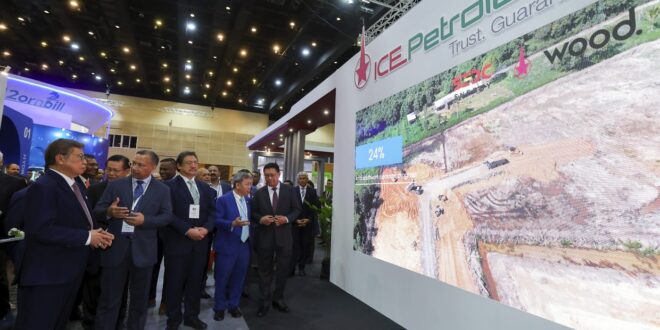KUCHING: Malaysia should seek alternative energy sources to replace diesel in light of the subsidy rationalisation exercise, says Sarawak Premier Tan Sri Abang Johari Openg.
He said Sarawak is now actively exploring hydrogen as a renewable energy, including reducing its production cost.
“Find an alternative to diesel, then you don’t need any subsidy.“Why should we be talking about diesel when we have hydrogen?” he told reporters after opening the Asia Pacific green hydrogen conference yesterday.Abang Johari was asked about the Federal Government’s decision to float the diesel price in Peninsular Malaysia effective yesterday.
The price of diesel in the peninsula is set at RM3.35 per litre, based on the unsubsidised market price according to the Automatic Pricing Mechanism formula for last month.
Finance Minister II Datuk Seri Amir Hamzah Azizan revealed that the weekly retail price of unsubsidised diesel will subsequently be announced every Wednesday, based on the formula.
In Sabah, Sarawak and Labuan, the diesel price remains at the subsidised rate of RM2.15 per litre.
Abang Johari also said there would be no need for petrol and diesel once the cost of hydrogen could be reduced.
“That is the solution. If we are still using diesel, people will keep asking for subsidies.
“Why can’t you have cheap alternative energy so you don’t have to use diesel?” he said.
In his speech earlier, Abang Johari said the Sarawak government, in collaboration with PETRONAS, had lowered the electricity requirement to produce 1kg of hydrogen from 60kW to 38kW.
“This advancement aims to cut hydrogen production cost by 50% and beyond, significantly enhancing its viability and competitiveness as an energy source,” he said.
Abang Johari also unveiled the Sarawak Energy Transition Policy (SET-P), which incorporates renewable energy sources and technology to ensure a clean and sustainable future.
He said it would focus on four main sectors comprising power, transportation, industry and buildings, as well as eight types of energy and technologies.
“These include renewable energy, hydrogen, energy efficiency, green mobility, synthetic fuels, bioenergy, oil and gas, and carbon capture, utilisation and storage (CCUS),” added Abang Johari.
 BeritaKini.biz Berita Viral Terkini di Malaysia
BeritaKini.biz Berita Viral Terkini di Malaysia





